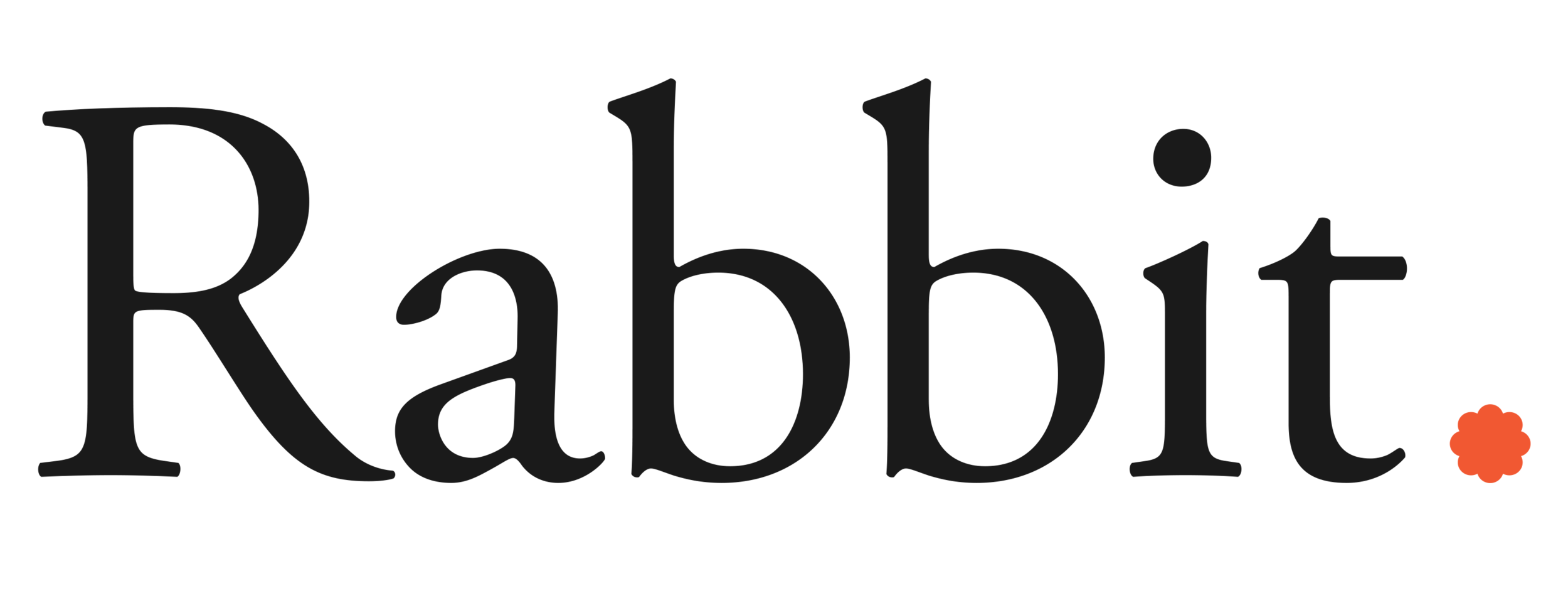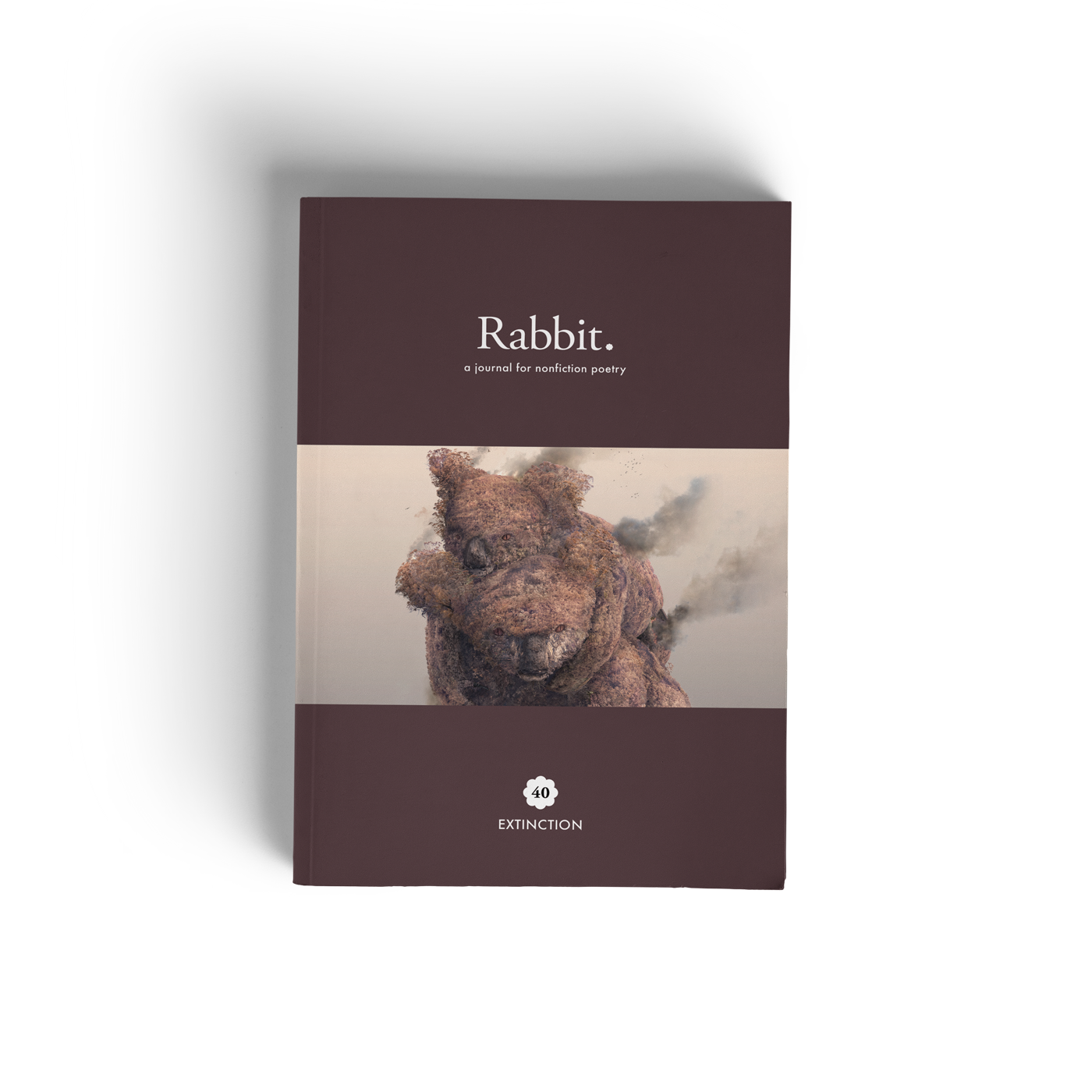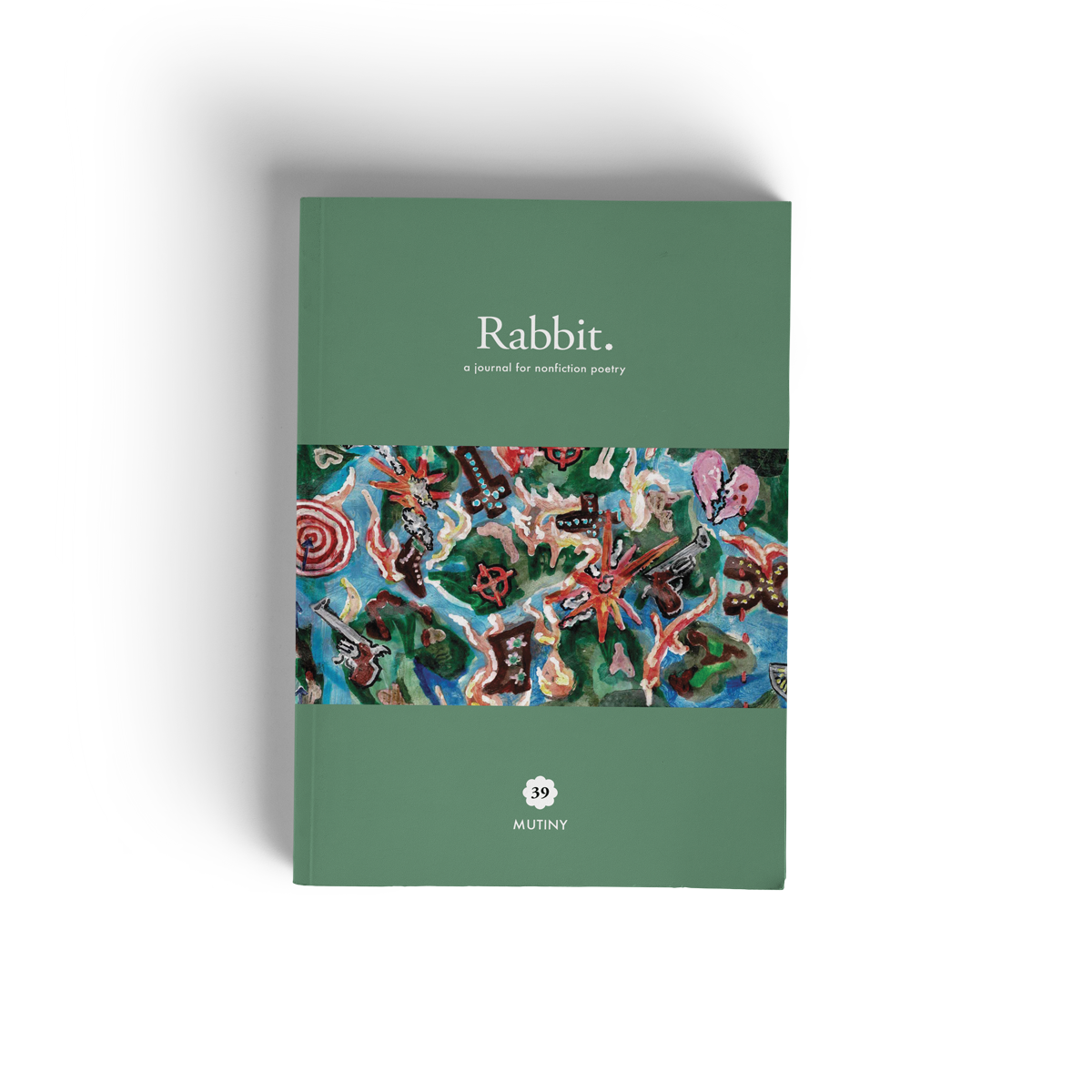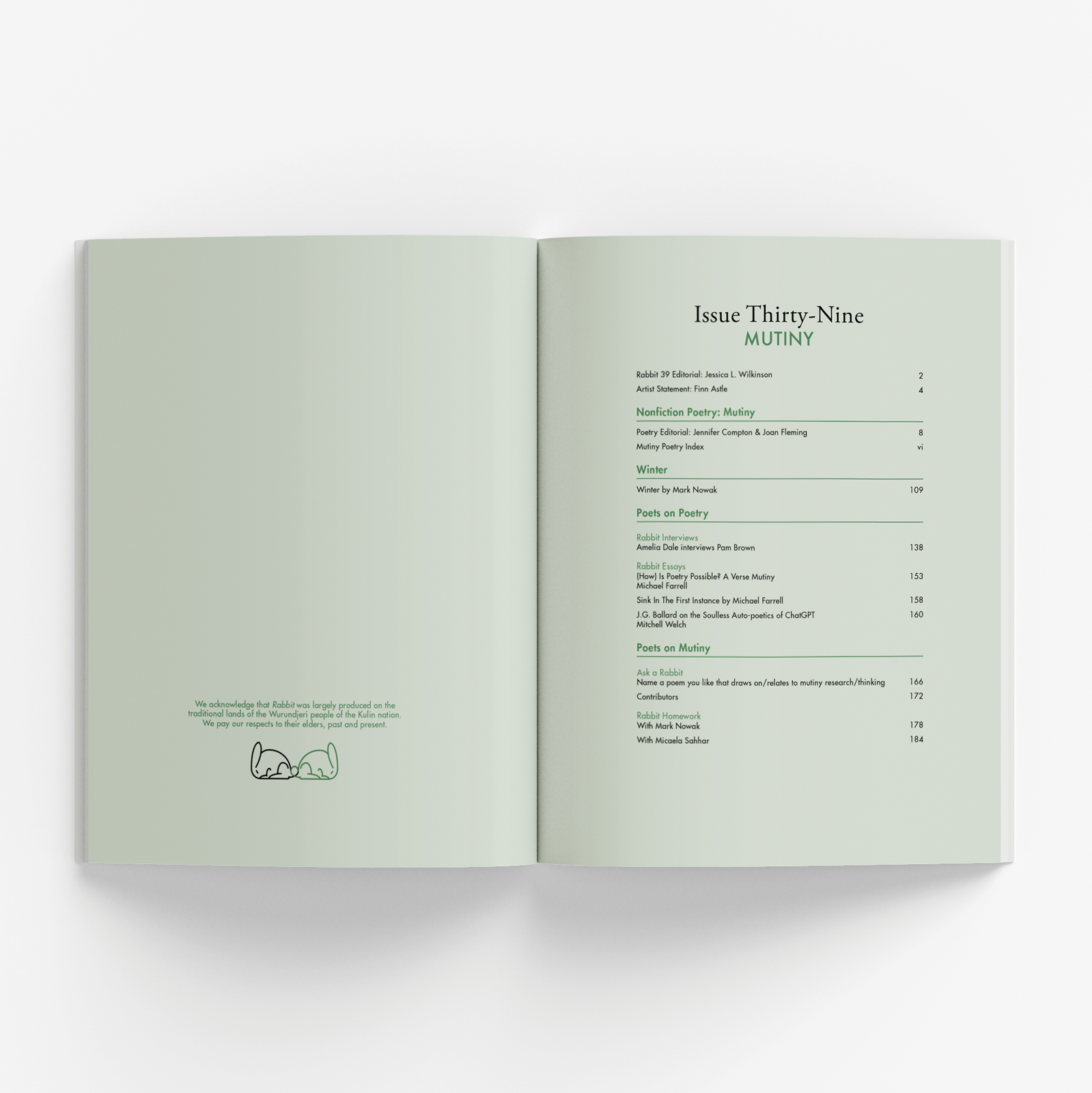RABBIT 31 – Science


RABBIT 31 – Science
Combining hormonal teenagers with the open flames of a Bunsen burner always seemed like a recipe for disaster.
Perhaps this was why I was so cautious when entering the science classroom at high school. Experiments in the wrong hands: that scalpel might slip on a sheep’s eyeball and into a pumping vein; a cheeky cube of sodium could explode the fish tank; there’s another ponytail set on fire… All that danger, kept in check by the casual supervision of a mildly interested teacher, gave me butterflies. (True, I was a nervous kid). Yet still, when I’d perform the assigned task and achieve the predicted result, there was definite excitement there, some satisfaction that the world could ‘make sense’.
Poetry, too, gave me butterflies, though not for the risk of physical injury. In high school literature classes, we were taught how to dissect poems, how to interpret the language differently, how to understand the interplay of music and meaning. This learning also carried with it the sense of the controlled experiment—indeed, with a stale reading list of poems by deceased English poets, I can imagine the ‘interpretations’ must have become predictable from the teacher’s perspective. But I do remember feeling excitement at poetry’s dexterous play with language—its malleability, ambiguity, and refusal to be summarised. We weren’t given much encouragement to pen our own poems at that stage, but, through guided close reading, the doors were surely opened onto possibility.
All of this is to say that, on reflection, I am grateful for those school years that helped me (all of us?) to learn how to use and appreciate the tools and methods (of science, of poetry) so that, in later years, we might confidently test new things, take risks, experiment wildly, develop a vaccine for COVID-19, scrawl out an isolation poem that doubles as an antidote. Both science and poetry can help us to make sense of the world, and to imagine new worlds beyond.
As I send this 31st issue of Rabbit off to print, I give special thanks to Tricia Dearborn, whose dual background in scientific research and poetry made her an ideal guest-editor of the poems for a science-themed issue. I love the fact that, as she mentions in her poetry editorial, scientific accuracy was an important consideration during the selection process.
In addition to the poems, this issue features: essays by Sara Hirsch (on grief, photography, cancer and Nano needles) and Tricia Dearborn (discussing the use of scientific knowledges within her own poetry collections); reviews of recent poetry collections; an interview with author of Labour and Other Poems Astrid Lorange; and artwork by Devika Bilimoria that evokes a sense of ‘biological, geological and cosmic realms’. The issue closes with a homework exercise, devised especially for our readers by acclaimed US poet and founder of Poets for Science Jane Hirshfield. May this issue inspire and challenge you all to pursue new experiments.
Contents
Rabbit 31 Editorial — Jessica L. Wilkinson
Artist Statement— Devika Bilimoria
Poetry Editorial — Tricia Dearborn
Venie Holmgren Prize 2020
Judges’ Report: Jeanine Leane and Michael Farrell
‘Anthropocene Poetics Part 2’ — Noemie Huttner-Koros
‘Tracks’ — Ryan Dickinson
‘Toolangi’ — Simone King
Rabbit Interviews
Amelia Dale interviews Astrid Lorange
Rabbit Essay
The Science of Poetry — Tricia Dearborn
Patient Satellite — Sara Hirsch
Rabbit Reviews
Zowie Douglas-Kinghorn reviews Norman Erikson Pasaribu’s
Sergius Seeks Bacchus
Michael J Leach reviews Heather Taylor Johnson’s (ed.)
Shaping the Fractured Self: Poetry of Chronic Illness and Pain
Liam Ferney reviews Daniel Swain’s
You Deserve Every Happiness But I Deserve More
Ask a Rabbit: How is science poetic and/or poetry scientific?
Rabbit Homework with Jane Hirshfield
Poems
The Other Side of Science — Elisabeth Snow
Listening to the Antarctic — Paul Brooke
My Harlequin — Michael J Leach
Department of Agriculture and Stand-Up Comedy — Benjamin Dodds
Rock Collection — Ronald Arana Atilano
Angio Scan — Margaret Bradstock
Can you remember — Angelica Esquivel
An even, free flow of moderate emotions — Alison Zheng
I really hope you’re doing okay — Stuart Barnes
Diary Entry: 16th May 2020. Lahore. — Ayesha Raees
Primary Examiner — Nellie Le Beau
Perpetual Motion — Amit Majmudar
If you — Jacqui Malins
You Are Light — Denise Mills
Light Speed — Damen O’Brien
Light Is the Fastest Thing We Know Of — Madhur Anand
Telescopic — Dominique Hecq
In Which Confocal Scanning Laser Microscopy is Utilised to Illustrate the Organisation of Nerve Fibres Mediating Painful Sensations… — Ian Gibbins
No Laughing Matter — Jilly O’Brien
Charms of the Cloud Chamber — Alicia Sometimes
The Human Interference Task Force — Devon Balwit
Contra — Aidan Coleman
Fields elicit — EJ Shu
Insecticide — Neetha Kunaratnam
You Can’t Change a Man — Caitlin Maling
Glacial Affirmation — Amanda Ellis
Talking to Manoomin — Kayla DeVault de Wendt
Chiapas — Peri Dwyer Worrell
Absolute Zero — Jennifer Harrison
Einstein’s Brain — Mark O’Flynn
Starstruck — Jaya Savige
drifting — Eric Jiang
I Hear The Universe Will End In Ice — Gavin Yuan Gao
From this issue
+ Rabbit Homework With Jane Hirschfield
+ 'Charms Of The Cloud Chamber' By Alicia Sometimes
+ 'Starstruck' By Jaya Savage
+ Amelia Dale Interviews Astrid Lorange










